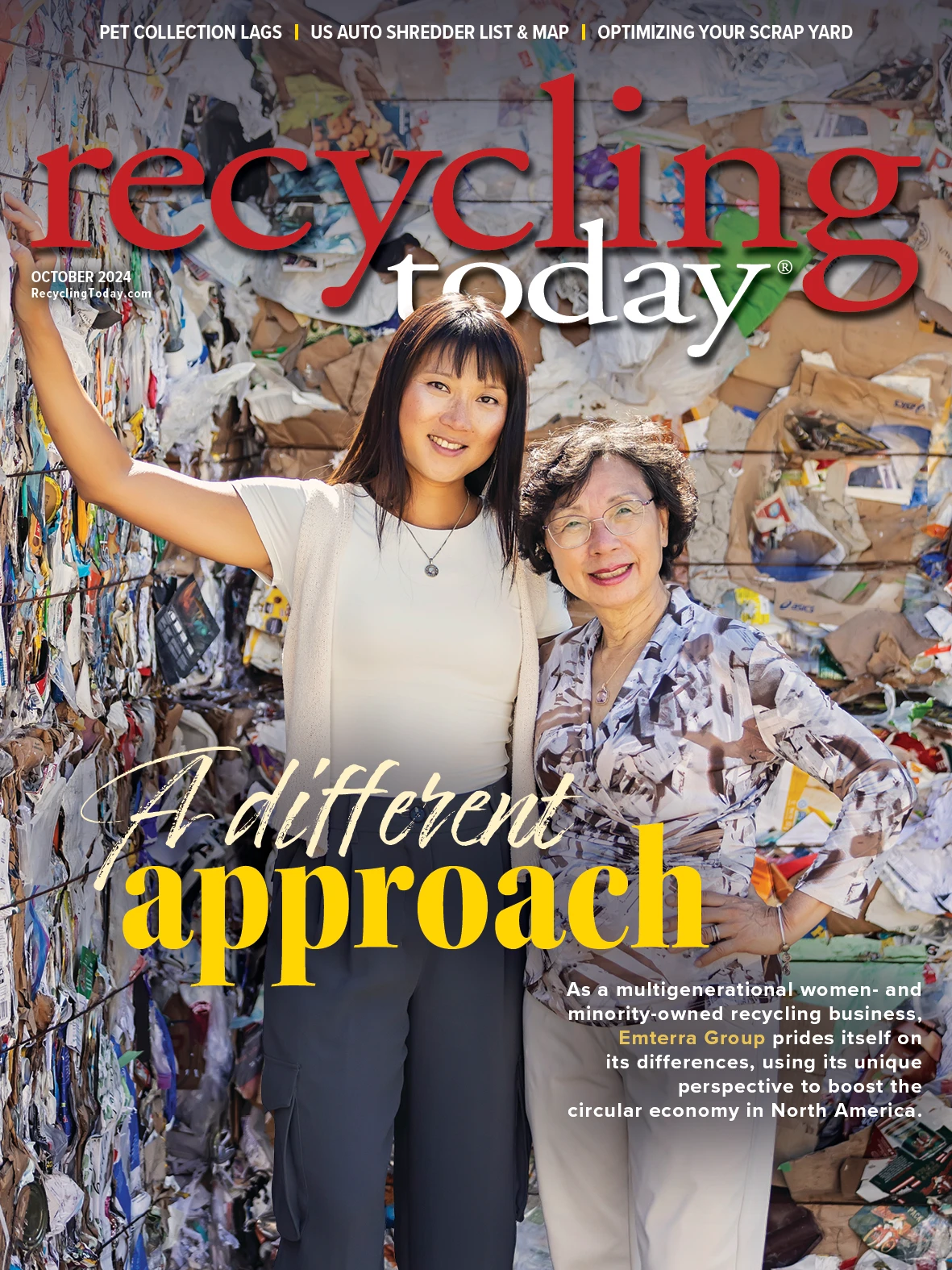Alex Grover
CEO of i2M

Alex Grover
Alex Grover, CEO of flexible polymer manufacturer i2M, doesn’t always associate her company with the recycling industry but acknowledges recycling now is a large part of its footprint.
The Mountain Top, Pennsylvania-based company designs, manufactures and prints three types of flexible plastic film, incorporating recycled content into its ReNew product line of flexible calendered and gravure printed films.
Grover says her interest in the recycling industry happened organically after joining i2M in 2018. She rotated through several departments, giving her a holistic view of sales, finance and operations, before becoming CEO in 2021.
“Being able to have ... different experiences helped me see both what’s most important for us today and what’s going to help drive us into the future,” she says.
Grover says i2M’s shift toward sustainability presented unique obstacles as the company adapted its business model.
"Automation is key to maximizing throughput of the recycled content, making recycling efficient and financially sound.”
“Oftentimes, people feel as though they have to sacrifice either quality or price for sustainability,” she says. “We don’t believe our customers should have to choose.
“The challenge that arises is how we also make that high-performance product sustainable and better for our planet.”
A thorough research and development phase allowed i2M to hone its process and develop a recycled-content product it could firmly stand behind.
“Manufacturers in the plastics industry should assess the full life cycle of the products they’re manufacturing,” Grover says. “This starts with understanding consumer needs, identifying opportunities to incorporate circularity and assessing the emissions associated with your operations.”
In the following interview, edited for clarity, Grover discusses challenges in the plastics recycling industry as well as emerging technologies.
Recycling Today (RT): What challenges in your work have you seen that impact recycling?
Alex Grover (AG): The first is changing the narrative around plastics so it is grounded in data and fact. Eliminating or avoiding plastics, which often feels like the only option given the rhetoric out there, is an enormous mistake, and the data shows that.
Vinyl is a perfect example—it can be recycled again and again, typically without losing physical properties. But figuring out how those [of us] within the plastics industry convey that clearly and transparently, that, to me, is one of the biggest challenges we have in front of us.
The second is improving overall recycling infrastructure and figuring out how to take back postconsumer recycled material in an economically viable way. In my experience, the only way to do that is through collaboration and innovation between businesses that are engaged, see the value of recycling and make sustainability a business imperative. It’s a surprisingly tough sell and takes trial and error. Communicating the vision of plastics sustainability and finding partners willing to take that journey with you is another challenge.
RT: Are there new technologies you see being influential in the future?
AG: Ultimately, when I look at the most successful recycling facilities, they’re ones that can do two things—invest in automation and address contamination. Automation is key to maximizing throughput, making recycling efficient and financially sound.
Being prepared to handle contamination is equally important. Unfortunately, contamination ... is a reality of recycling. But the companies that recognize that and are using technology to mitigate its [effects] ... are the ones making the biggest impact.

Explore the October 2024 Issue
Check out more from this issue and find your next story to read.
Latest from Recycling Today
- Orion ramping up Rocky Mountain Steel rail line
- Proposed bill would provide ‘regulatory clarity’ for chemical recycling
- Alberta Ag-Plastic pilot program continues, expands with renewed funding
- ReMA urges open intra-North American scrap trade
- Axium awarded by regional organization
- Update: China to introduce steel export quotas
- Thyssenkrupp idles capacity in Europe
- Phoenix Technologies closes Ohio rPET facility





